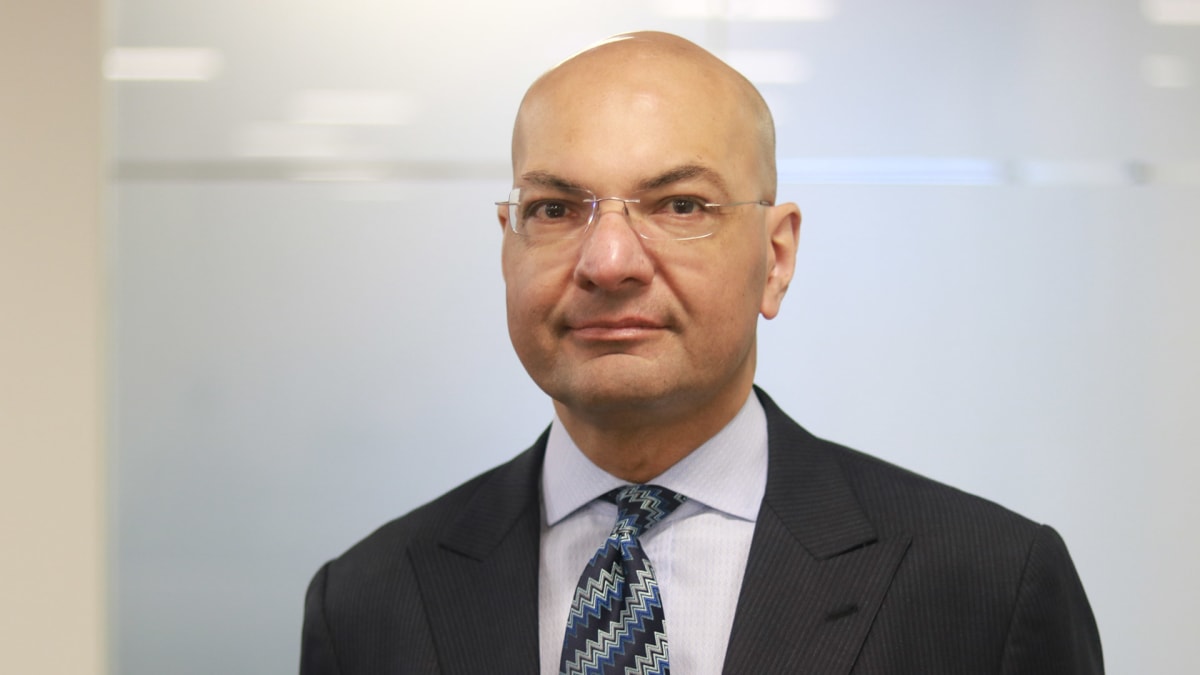
It’s all about the Fed, says Karim Ahamed, a partner at wealth management firm Cerity Partners. The Federal Reserve’s December meeting will probably determine the direction of financial markets, he said in a conversation with TheStreet.
If the Fed indicates its interest rate increases are nearing their end, markets will likely respond positively, Ahamed said. But if the central bank voices the need for higher rates than the markets expect, they’re likely to respond negatively, he said.
Ahamed also provided commentary about a growth-stock, exchange-traded fund (ETF) and an energy-stock ETF that he likes
TheStreet: What do you expect to be the major issues in financial markets over the next year?
Ahamed: The No. 1 issue is where does the Fed go. How far will it raise interest rates in December? The outcome and tenor of the Fed’s communique will be a major driver for markets.
TheStreet: The consensus view is that the Fed will raise rates 50 basis points in December and indicate a terminal federal funds rate of 5%. How would that affect markets?
Ahamed: Based on recent market behavior, if there is any signal the Fed is close to an end in raising rates, it will have a salutary impact on U.S. markets. If the Fed says the U.S. economy is too strong and it needs to lift rates [a lot], that could hurt U.S stocks.
TheStreet: What’s a major issue you see facing financial markets beyond next year?
Ahamed: There’s a movement toward de-globalization. The free trade campaign that began after World War II has been rolled back. This will play out in a reduction of U.S. reliance on China’s supply chain.
That could benefit the U.S., including stocks, because we have relied so heavily on China’s supply chain. Covid was a wakeup call [because it shut that supply chain down].
If the conflict between the U.S. and China continues, there will be impetus for U.S. companies to re-shore production in the U.S., and go to other countries that are more hospitable.
But other elements of de-globalization could hurt U.S. stocks. The U.S. has been a big beneficiary of free trade. So maybe a move away from that will make it difficult for U.S. companies to sell their products in some countries.
TheStreet: Do you think the stock market has bottomed?
Ahamed: As of Nov. 23, the S&P 500 was down 16% year to date. As of Sept. 30 it was down 24%. That suggests we may have seen a turnaround. There’s optimism that the Fed is close to the end of raising interest rates.
But it all depends on the outcome of the Fed meeting in December. We aren’t out of the woods, but the last few weeks have been encouraging.
TheStreet: What are a couple stocks or stock funds that you like?
Ahamed: We prefer funds, [because they’re diversified and less risky]. Here are a couple that we’ve bought tactically—for the next 12 to 24 months.
The first is Vanguard Growth ETF (VUG). We bought it as a recovery play. Growth stocks have gotten pummeled this year, but the economy is relatively healthy.
Big technology names are down so much that investors might see that as a reason to go back. Tech companies continue to be profitable.
TheStreet: What’s the second fund?
Ahamed: The Energy Select Sector SPDR ETF (XLE). This is a good play on the energy rebound. The global energy supply disruption will likely persist at least two years.
Exports from Russia, Iran, and Venezuela will continue to be sidelined. OPEC+ has resolved to maintain high prices. U.S. shale producers haven’t jumped in to boost supply. All that is likely to keep energy prices higher in the next 18 to 24 months.
TheStreet: What’s your view of bonds now?
Ahamed: After a decade of abnormally low rates, they are starting to look attractive. We like municipal bonds, partly for their tax advantage, and also because of the improved state of state and municipal finances.
States and cities are seeing good tax flows. That’s because of taxpayers’ rising salaries, their capital gains and increasing property values, which mean higher property taxes.
We also like taxable high-yield bonds. That’s a play on rising energy prices. Energy companies make up a sizable portion of the high-yield bond universe.







